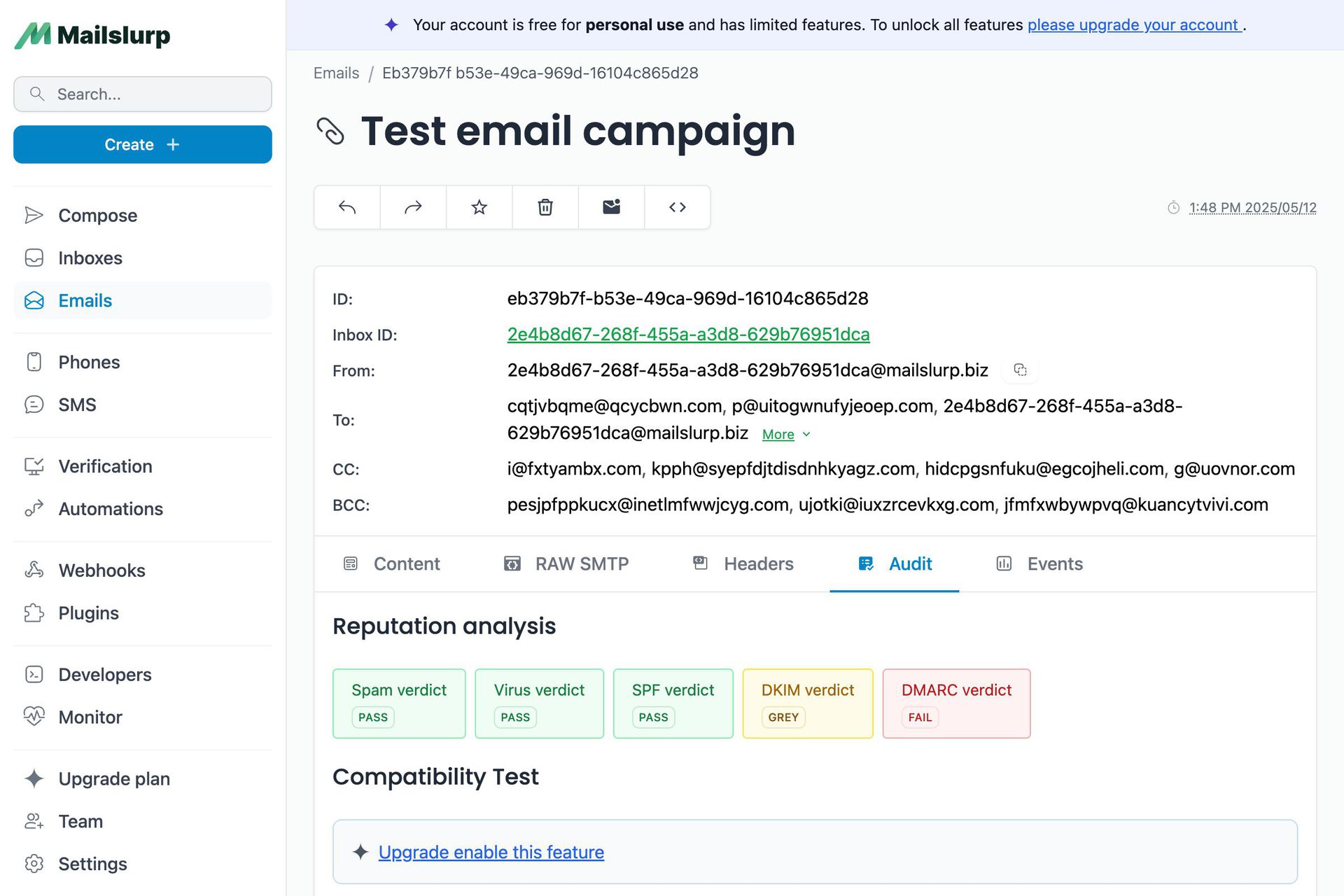Videos
Check out our tutorial video series.
Check your site or mailserver's spam ranking and domain authority with these free tools to safeguard email deliverability and stay out of spam folders.
Domain reputation refers to how Internet Service Providers (ISP) perceive your domain. It is a huge determining factor in email deliverability, standing, and ranking by looking at past email sending patterns and the interaction rate of the emails.
When sending emails, the different domains affect the domain's reputation. There are three types of domains. Mainly; From address, Return-Path domain, and DomainKeys Identified Mail (DKIM). Maintaining an excellent domain reputation requires having control of the three domain types.
Recipients record how your domain sends an email and how the message performs inside the inbox. Most ISPs use algorithms to rate the domain and verify the score while analyzing future messages to determine its credibility.
A strong domain reputation means your emails don't fall into the spam folder and a poor one indicates your messages don't get to the inbox.
Below are tools and stats to help you check and understand your sending reputation.
These tools from Google provide an overview of how Google views your domain and displays data on which emails get delivered and those that do not and how they handle a particular domain when their email arrives.
Google also provides data on how you're doing in terms of authentication, spam reports, and email encryption. With this information, although only available to senders with a high sending value, you can see how your reputation changes on a 4-step scale.
Talos Intelligence from Cisco allows you to check the reputation of your email server IP and domain.
It tells you whether your other email service providers rate your domain as good, poor, or neutral. A neutral reputation implies that there's not enough information about your domain and a poor one indicates that your messages are not arriving in the inbox.
Tools like Barracuda and MacAfee provide up-to-date information on domain reputation by closely monitoring the databases to determine which domain is blocked or considered risky.
SpamAssassin filters let you check the reputation of your domain and provide you with a score that describes how mail server providers perceive your domain. They also identify email headers that could hinder delivery.
Tools like MxToolBox lets you know who's sending emails allegedly from your domain, the sender's reputation, and the IP address and location. Additionally, these tools give you access to information on domain blocking and notifications if your email reputation varies.
The domain and email server reputation are crucial if you're running an email outreach campaign, and when neglected, your email account and domain might get blocked. It's essential to remember that your sender's reputation is entirely in your control, and constant monitoring will lead to an impeccable reputation.
It's possible to rebuild your domain reputation by following the correct practices, and these five tools will prove their worth in helping you maintain and protect your email deliverability rate.
Check out our tutorial video series.
Email and SMS guides for automation and testing.
View github project code for multiple languages.
Latest posts from the MailSlurp team.
Test, build, and automate messaging with a free MailSlurp account.
